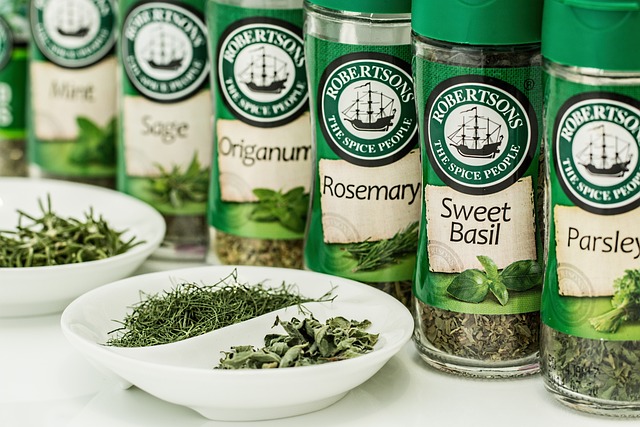Throughout the Bible, we find numerous references to herbs and foods that God has provided for our nourishment and healing. Ancient wisdom has long emphasized the medicinal and spiritual value of the plants that are part of God’s creation. As Christian women, it’s important to understand how these biblical foods and herbs can play a role in our holistic health, guiding us not only physically but also spiritually.
In this article, we’ll explore the significance of some key biblical herbs and foods that promote healing and wellness, and how they connect to God’s plan for our overall well-being.
1. Olive Oil – The “Healing Oil”
Olive oil holds a prominent place in Scripture, symbolizing both physical and spiritual healing. It was used to anoint kings, soothe wounds, and even light lamps. In James 5:14, we are instructed to use olive oil for healing, “Is anyone among you sick? Let them call the elders of the church to pray over them and anoint them with oil in the name of the Lord.”
- Health Benefits: Olive oil is rich in healthy fats and antioxidants. It promotes heart health, reduces inflammation, and nourishes the skin. Using olive oil in your cooking or applying it topically can be part of a holistic approach to health.
2. Garlic – A Natural Antibiotic
Garlic is often mentioned in historical texts for its medicinal properties, and while it’s not named directly in the Bible, it was a staple in ancient diets, including those of the Israelites. This potent herb was known for its ability to fight infections and boost the immune system.
- Health Benefits: Garlic contains compounds that have been shown to reduce blood pressure, combat harmful bacteria, and even reduce the risk of heart disease. Incorporating garlic into your diet regularly can provide a strong defense against illness.
3. Honey – God’s Natural Sweetener
Honey is mentioned repeatedly in the Bible, often symbolizing abundance and blessing. The Promised Land was described as a “land flowing with milk and honey” (Exodus 3:8). Beyond its symbolism, honey has powerful healing properties.
- Health Benefits: Honey is antibacterial and anti-inflammatory, making it useful for wound care and soothing sore throats. It also serves as a natural energy booster and can be a healthier alternative to processed sugars.
4. Figs – Nourishment for the Soul and Body
Figs are one of the first fruits mentioned in the Bible, with Adam and Eve using fig leaves in the Garden of Eden (Genesis 3:7). In the New Testament, Jesus curses a barren fig tree (Matthew 21:18-22), demonstrating its importance as a source of nourishment.
- Health Benefits: Figs are rich in fiber, which aids digestion and promotes gut health. They are also packed with vitamins and minerals like potassium and magnesium, essential for maintaining overall well-being.
5. Hyssop – The Purifying Herb
Hyssop is another herb with significant spiritual and medicinal meaning in the Bible. It was used in cleansing rituals in Exodus 12:22, where the Israelites used it to spread the blood of the Passover lamb on their doorposts. King David also referred to hyssop in Psalm 51:7, asking God to purify him with it.
- Health Benefits: Hyssop has antimicrobial and anti-inflammatory properties. It’s commonly used to treat respiratory issues like congestion and coughs. Drinking hyssop tea or using it in essential oil form can support immune and respiratory health.
6. Pomegranates – A Symbol of Life and Fertility
Pomegranates are often seen as a symbol of fertility and abundance in the Bible. The high priest’s robe was adorned with images of pomegranates as part of the ceremonial garb described in Exodus 28:33.
- Health Benefits: Pomegranates are rich in antioxidants and anti-inflammatory compounds. They can help reduce the risk of chronic diseases such as heart disease and cancer, as well as promote healthy skin.
7. Coriander (Manna) – God’s Provision in the Wilderness
Coriander is mentioned in Exodus 16:31 as resembling the manna provided to the Israelites in the wilderness. It is known for its healing properties and its use in traditional medicine for centuries.
- Health Benefits: Coriander seeds help in digestion, reduce bloating, and can even lower cholesterol levels. It’s a versatile spice that can be used in various dishes to aid in overall digestive health.
8. Barley and Wheat – Sustaining Grains
Both barley and wheat were staple grains in biblical times, often used in offerings and daily sustenance. Deuteronomy 8:8 describes the Promised Land as “a land of wheat and barley,” showcasing their importance.
- Health Benefits: Barley and wheat are excellent sources of fiber, vitamins, and minerals. They promote heart health, help regulate blood sugar levels, and support healthy digestion. Incorporating whole grains like barley and wheat into your diet can provide lasting energy and nourishment.
Healing for the Whole Person
The Bible teaches us that healing is holistic, encompassing the body, mind, and spirit. Many of these biblical herbs and foods are not just for physical healing but serve as reminders of God’s provision and care for His people. As we learn to care for our bodies with the foods God has provided, we should also seek spiritual nourishment through prayer, scripture, and trust in God’s healing power.
By embracing the natural herbs and foods mentioned in the Bible, we are invited into a deeper relationship with God and His creation, stewarding our health in a way that honors Him. As 1 Corinthians 10:31 says, “So whether you eat or drink, or whatever you do, do it all for the glory of God.”
Conclusion
Understanding the biblical herbs and foods God has provided gives us insight into how we can nurture our health in alignment with His design. By incorporating these powerful ingredients into our diet and lifestyle, we honor both our physical bodies and our spiritual journey with Him. Let this exploration encourage you to see God’s hand in every aspect of your wellness journey.
